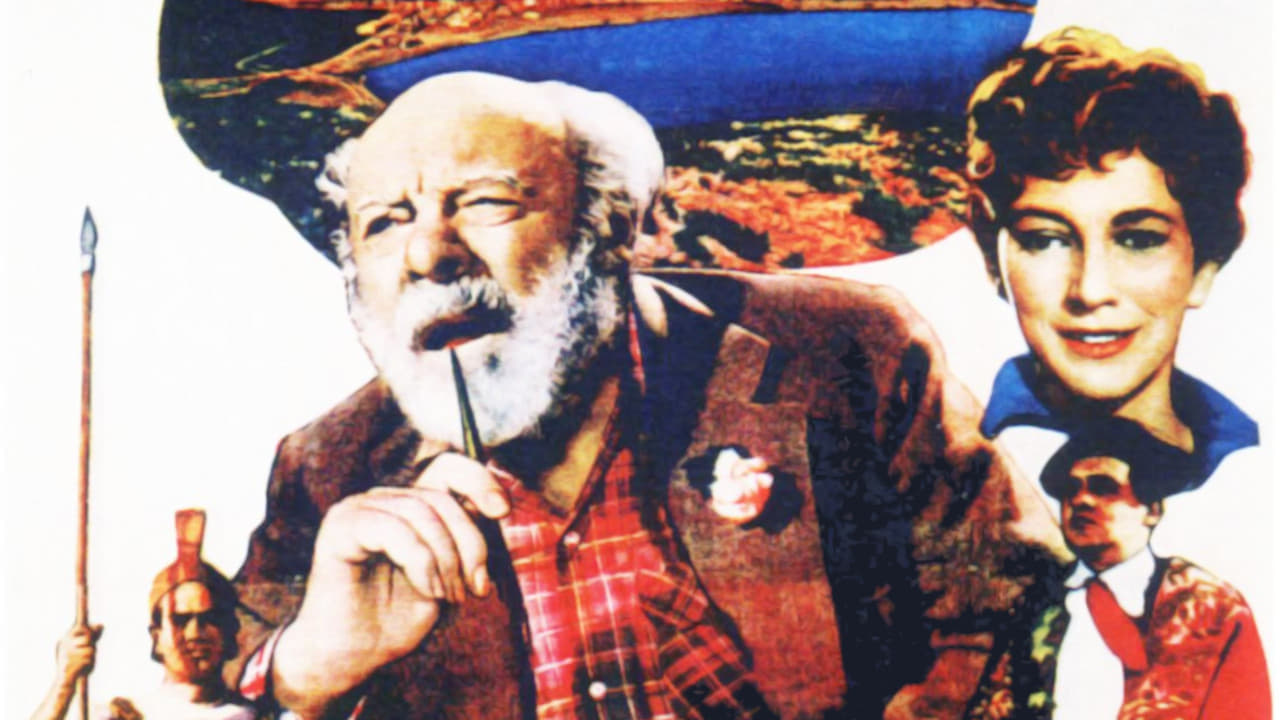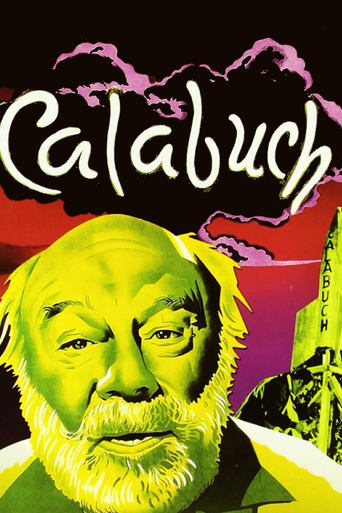Robert Joyner
The plot isn't so bad, but the pace of storytelling is too slow which makes people bored. Certain moments are so obvious and unnecessary for the main plot. I would've fast-forwarded those moments if it was an online streaming. The ending looks like implying a sequel, not sure if this movie will get one
Sameer Callahan
It really made me laugh, but for some moments I was tearing up because I could relate so much.
Myron Clemons
A film of deceptively outspoken contemporary relevance, this is cinema at its most alert, alarming and alive.
Jakoba
True to its essence, the characters remain on the same line and manage to entertain the viewer, each highlighting their own distinctive qualities or touches.
ma-cortes
Maestro Berlanga realizes another acceptable film full of good feeling and brief social critical . Spanish coral film with enjoyable screenplay by Leonado Martin and the same Berlanga dealing with a scientist whose inventions he thought to be good for humanity , but he then escapes from a hypocrite society that builds atomic dangers and nuclear weapons . Spanish/Italian co-production masterfully directed by veteran Berlanga who satirizes daily life of the post Spanish war and full of a high level of ingenious humor , including a light critical but without malevolent intention . The professor Hamilton (Edmund Gwenn) is a famous scientific , a wise naive old man that makes atomic artifacts , but tired his inventions to be used for military objectives , flees to realize his mistake . He escapes and shelter a Spanish little town called Calabuch , a idyllic place located on Mediterranean coast , a location where the whole world does what he likes . It is inhabited by diverse people : the priest (Felix Fernandez) , the smuggler (Franco Fabrizi) , the teacher (Valentina Cortese) , the Corporal (Juan Calvo) of Guardia Civil , the lighthouse man (Jose Isbert) , these are the most wonderful of the world . They have nature of naivety and help the scientific who befriends neighbours , all of them are very good people . Hid in these people he can live and die in peace ; Utopian Calabuch has an air of surrealism magic.This is a fable/metaphor story that contains busy comedy , humor , frantic pace , blatant anti-militarism , joy , amusing gags , rowdy satire , noisy hustle ; but the main problem is that if you are foreigner you will have to know well the Spanish society to understand the double-senses and jokes . The main and support actors stand out under perfect direction of Berlanga very far from sour criticism that carried out in previous and subsequent works such as ¨Placido or El Verdugo¨ that include bitter , pessimistic descriptions of social classes . In ¨Calabuch¨ we can find very fun characters, all of them caricatures of the "spanish way of life" and a mirror on the Spanish society by that time . Awesome playing by Edmund Gwenn as a naive , ingenuous wise scientist . The movie displays a Spanish secondary star-studded such as : Juan Calvo , Manuel Alexandre (Berlanga's habitual) , the great Jose Isbert and the likable Jose Luis Ozores , Maria Vico , Mario Berriatua , Nicolas Perichot , as well as Italian players as Franco Fabrizi and Valentina Corteres who married Richard Basehart who starred ¨El Jueves Milagro¨.Direction by Luis Garcia Berlanga is pretty good , he shows his skill for edition , realizing long shots with crowd who moves easily . Acceptable cinematography by Francisco Prosper , though is necessary a perfect remastering ; being filmed on location in Peñiscola (Castellon) , where years later was filmed ¨El Cid¨ by Anthony Mann . Lively and emotive musical score by Guido Guerrini and Angelo Francisco Lavagnino , though uncredited . Berlanga filmed several polemic movies during the 50s , all of them were beset by difficulties with the censors caused by real critical to social stratum such as ¨Bienvenido Mister Marshall¨ (1953) , a very good film which tended not to be very well received by the censor for its acidity and considered to be one of the best Spanish films of the history ; however, his strong portrait of Spanish society , plenty of sharpness , didn't please the pro-Franco authorities . His next joint venture was ¨Los Jueves, Milagro¨ (1957), it was modified by the censors and delayed for several years before its eventual release . Subsequently , Berlanga made ¨Placido¨ (1961) masterfully played by Cassen , this is the film debut for the great producer Alfredo Matas and received an Oscar nomination in 1963 , being well-received at the International Festivals , reviewing the useless charity , it's a sublime film but with censorship realized by this great maestro Luis Garcia Berlanga . Later on , Berlanga made one of his best films: ¨El Verdugo¨ (1963), one of the undisputed masterpieces and fundamental in filmography of Luis Garcia Berlanga where shows the miseries of an amoral society and shot at the height of his creativity, in a period cultural difficult, where the enormous censorship of the political regime, exacerbated the ingenuity and imagination of the scriptwriters . He continued filming other interesting pictures as in 1973 he went to Paris to begin filming ¨Grandeur nature¨ with Michael Piccoli , another problematic film , focusing this time on the fetishism of a man who falls in love with a doll . Several years later , after Franco's death, he filmed a trilogy comprising ¨La Escopeta Nacional¨ (1978), ¨Patrimonio Nacional¨ (1981) and ¨Nacional III¨ (1982), where he clarified the evident disorders in the Spanish upper , middle-class upon being confronted with a new political status quo , realizing a sour denounce of the Spanish society . Berlanga ulteriorly shot a peculiar film titled ¨La Vaquilla¨ (1985) plenty of Spanish-star-cast and set in the Spanish Civil War , resulting to be the first time dealing with this convulsive period in comedy style . Following the same themes, he went on filming coral films such as ¨Moros and Cristianos¨ and ¨Todos a Carcel¨ (1993) that won three Goya Awards for Best Film, Best Director and Best Sound ; being his final film : ¨Paris Tombuctu¨. Rating ¨Calabuch¨ : 7'5 , pretty good . Essential and indispensable watching for Berlanga aficionados . Better than average and well worth seeing .
Pierre Radulescu
I remember a story about a young man living in a country where nobody was very happy, nobody was very unhappy either. A friend of him had moved to another country and sent a letter about his new life. Once arrived in the new country he had been put in jail, for some minor offense or so. Well, he had color TV in prison, also plenty of food for breakfast. It seemed a formidable life there: the worst that could happen to you was access to color TV and a huge breakfast in the morning.This story came to my mind as I was watching Calabuch: a rocket scientist disappears from his research laboratory (where people don't seem to be very happy, not very unhappy either), and goes to a small fishing village where nobody knows him. He is immediately arrested for loitering, but the prison is as idyllic as everything and everybody there. To be frank, there is no color TV (the movie was made in 1956), but otherwise the prison is merely a very convenient bed-and-breakfast. During the day you are free to walk outside. The villagers take the man for an old tramp and everybody sympathizes with him instantly. Prison, people, traditions, church, chess games and phone service, even corrida, all is idyllic.Maybe the movie is like the story above: too idyllic to be true. Which means that the film director (like the guy who had sent the letter to his friend) intended actually to communicate that life was not that perfect after all.Or maybe we shouldn't suspect the film director of any hidden intentions, that's also possible: what if he wanted to make just a funny movie? A special note for Edmund Gwenn. It was his last role in a feature film and he was as irresistible as he had been throughout all his long artistic career. Gwenn was 79 by that time.
MARIO GAUCI
This is only the third film I've watched from this Spanish director: the others were the compendium LES QUATRES VERITES (1962; the episode starring Hardy Kruger) and NOT ON YOUR LIFE (1963) - a veritable masterpiece often cited as the best Spanish film ever made - a black comedy dealing with capital punishment and featuring Italian star Nino Manfredi.As with most film-makers hailing from this Mediterranean country, Berlanga's main concern are the vicissitudes and tribulations of man vis-a'-vis tradition and ongoing progress: here, therefore, we find an eminent and elderly nuclear scientist (Edmund Gwenn in his last role for the cinema) who suddenly disappears off the face of the earth - only to re-emerge in a tiny Spanish fishing community and attempting to lead an anonymous existence. However, his new vagabond lifestyle soon lands him in jail - except that the custodian is forced to let the inmates go on occasion because their presence is required elsewhere: for instance, Franco Fabrizi is a convicted smuggler who not only plays in the local band but also happens to be the cinema projectionist! This allows the director to poke fun at figures of authority (there is also the priest who won't concede defeat even at a simple game of chess) but, at the same time, celebrate Spanish customs - such as religious processions, the corrida (unusual here in that it takes place near the sea-shore) and a rival display of fireworks (where Professor Gwenn's mathematical prowess certainly comes in handy, thus leading the people of Calabuch to victory for the first time - but, then, a snapshot of the occasion exposes his true identity and the modern world on the outside comes beckoning to him once more!).The latter results in a somewhat anti-climactic 'curtain' as the Professor goes back to his former duty without so much as a struggle, either from the old man himself or the community which had come to appreciate and love him. In retrospect, the entire film disappoints - in that I had expected the satire to be of a more scathing nature...but the pleasant detail of unassuming everyday life and Gwenn's central performance are, nonetheless, enough to sustain considerable interest throughout.
José Manuel Mirás Avalos
This title might be remembered as the last movie starring Edmund Gwenn who was a beloved character actor. The beginning is quite seductive: a professor of Physics who had been working for a government in several researches involving atomic bombs vanished. After the introduction we appreciate that the plot is quite different than the expected search for the professor... We are looking the movie from the view point of the professor who is in a small Spanish village enjoying himself with the people of the town. It is an excuse for depicting some of the traditions of the Spanish people at the time the film was shooted and it includes several critics to the Spanish government and way of life of those times. This fact may be a disadvantage for international viewers; however, the movie posses a lot of funny moments which deserve a wide range of public consideration.This is a funny movie by one of the main directors in Spanish cinema history, Luis García Berlanga and it may be regarded as one of the truly Spanish cinema classics.

